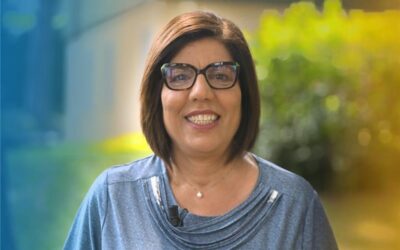 180 young law students and legal professionals from 13 nations discuss the challenges of the current hot topics on the theme of respect and dignity of every person. This is the second international congress for the group who met first in Rome in 2009 where they considered the theme: law in search for justice.
180 young law students and legal professionals from 13 nations discuss the challenges of the current hot topics on the theme of respect and dignity of every person. This is the second international congress for the group who met first in Rome in 2009 where they considered the theme: law in search for justice.
The congress opened with a message from Maria Voce, President of the Focolare Movement (also the co-ordinator for Communion and Law) who, at the time of the congress was in the Holy Land. “We need courage when faced with these challenges; strong commitment, coherence, the ability to see and recognise the signs of our times that give hope and show the way to be followed together in order to build a united world where human dignity is really considered and respected”. Dr Vera Araujo, as a sociologist and jurist, gave a lecture and touched on the value of norms for civil society.
 Underlying question for the congress: can there be a ‘common denominator’ for dignity, in a universal dimension and for each person? And how can it be protected? The answer seemed to grow from the words shared in 2006 by the Vice President of the Italian constitutional court, Paolo Maddalena, which were quoted by Professor Adriana Cosseddu (University of Sassari, Sardinia): “Individual dignity is the essence and the identity of the whole person. Without it there cannot be equality or freedom.”
Underlying question for the congress: can there be a ‘common denominator’ for dignity, in a universal dimension and for each person? And how can it be protected? The answer seemed to grow from the words shared in 2006 by the Vice President of the Italian constitutional court, Paolo Maddalena, which were quoted by Professor Adriana Cosseddu (University of Sassari, Sardinia): “Individual dignity is the essence and the identity of the whole person. Without it there cannot be equality or freedom.”
She invited the young people present to look at and consider the current situation in North Africa: the spreading demonstrations and signs of revolt by large swathes of the population, the grave economic difficulties experienced where the cost of essential goods continues to rise uncontrollably, “its proof that the protection waited for and the guarantees that are given are also requests for the recognition of liberty and dignity.”
This was the basis, on which three intense days unfolded of Congress unfolded. The young participants were also the leaders of their congress.
 There were 5 study groups which created enthusiastic debate on the following topics:
There were 5 study groups which created enthusiastic debate on the following topics:
– Dignity and the European Constitution
– Humanity dignity and new forms of slavery
– Dignity of the embryo
– Dignity within the penal system and prisons
§ Human dignity and respect for the environment
Added to these points for consideration were experiences of people working in the field of law: from the criminal lawyer to the public prosecutor; the legal adviser to a voluntary visitor to prisons.
On the last morning Prof Vincenzo Buonomo (Lateran University), as an introduction to Chiara Lubich’s talk from 1977 to the United Nations, underlined the proof of that the expected protection and guarantees that are claimed are so many applications for recognition of freedom and dignity: “… If more people accepted suffering for love, suffering which asks for love, it could become the strongest weapon to give humanity its greatest dignity”.




0 Comments